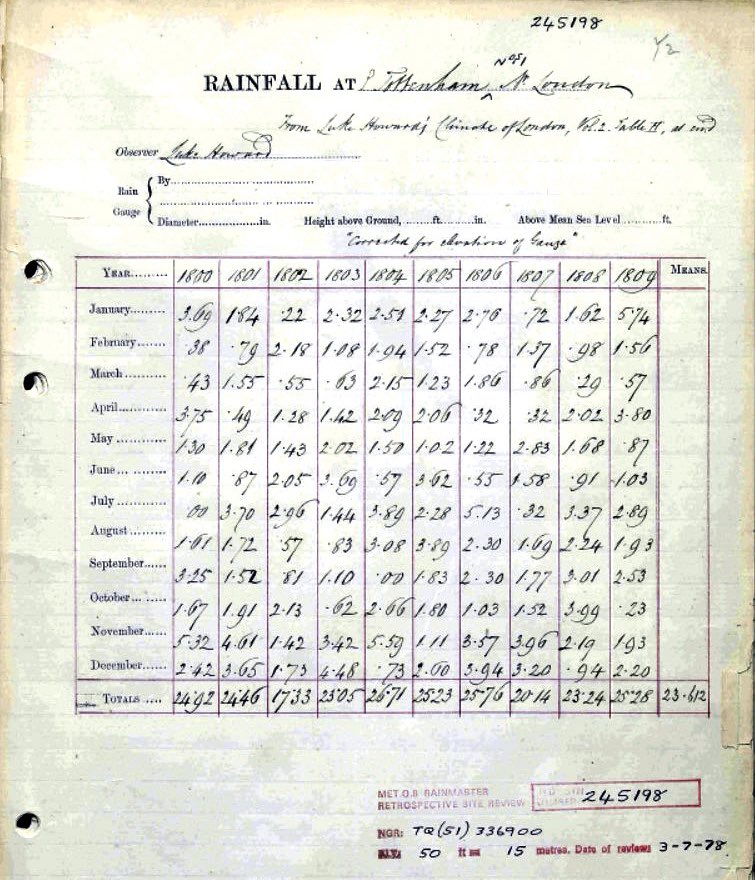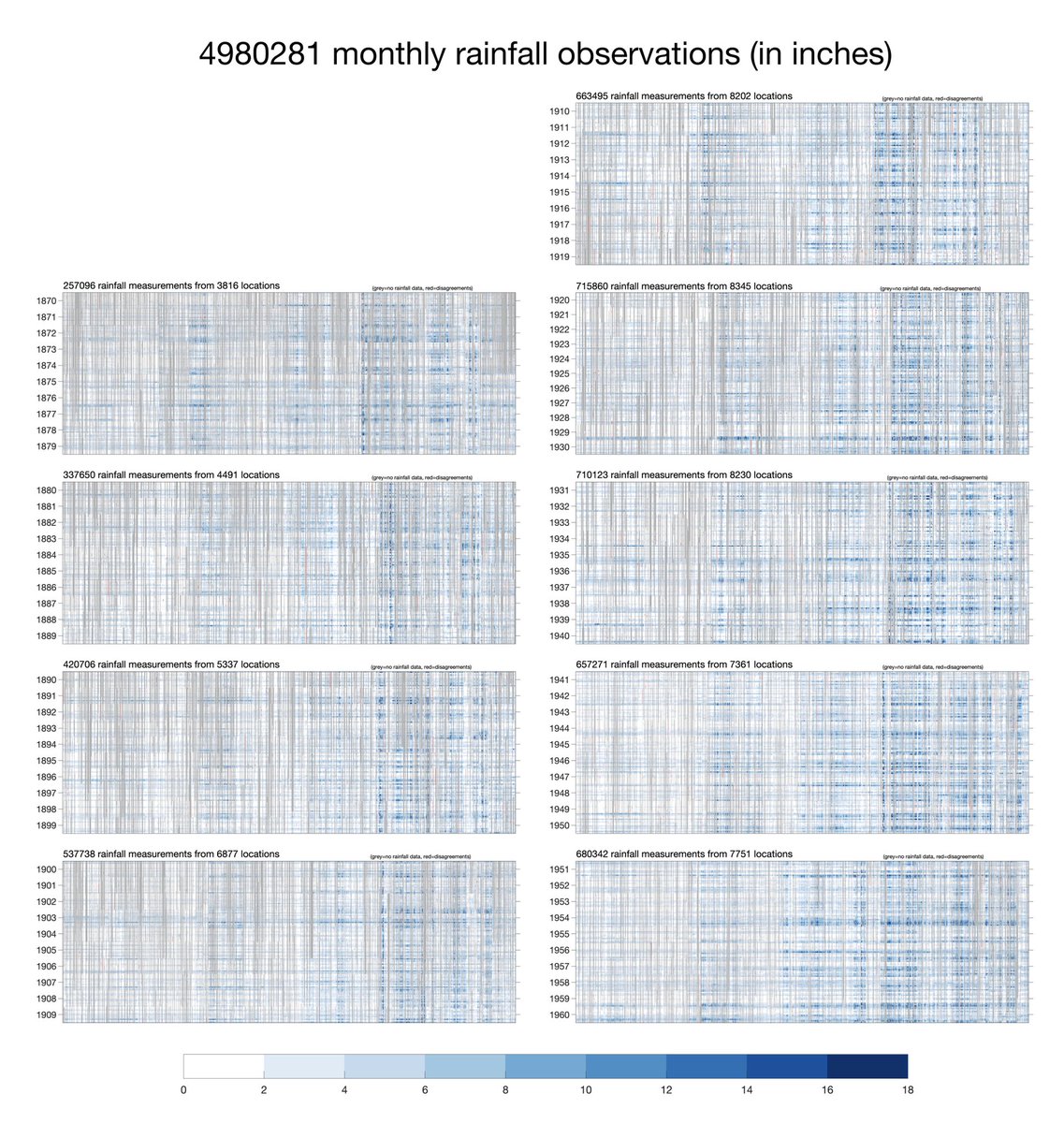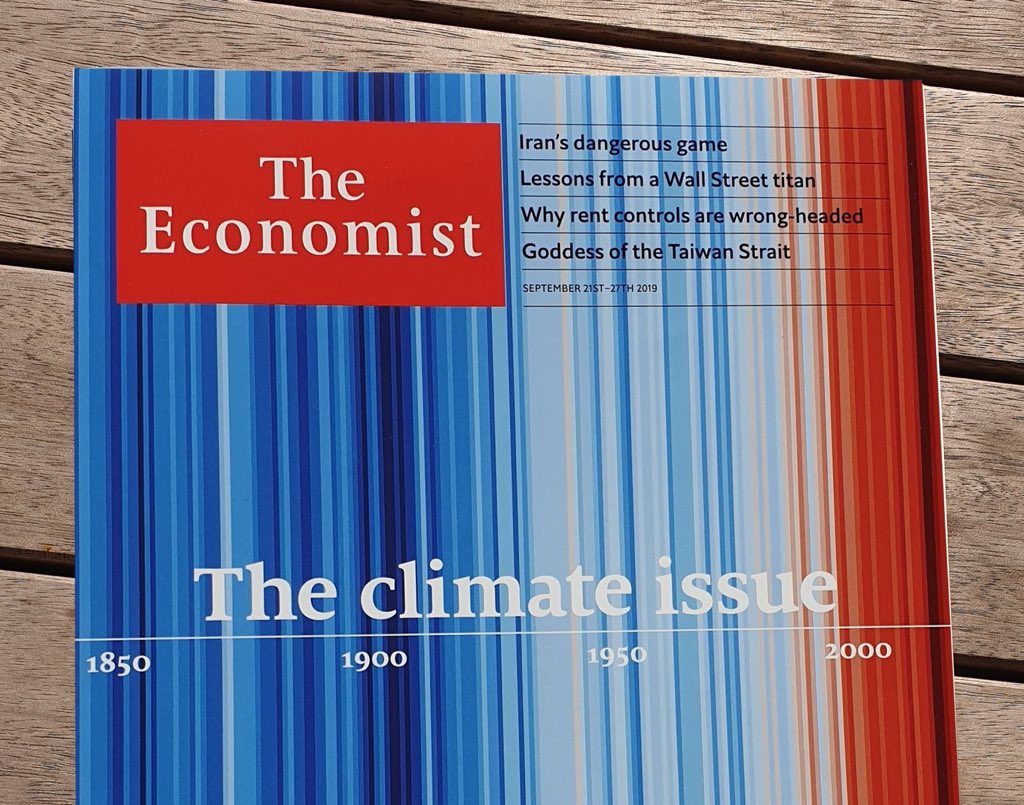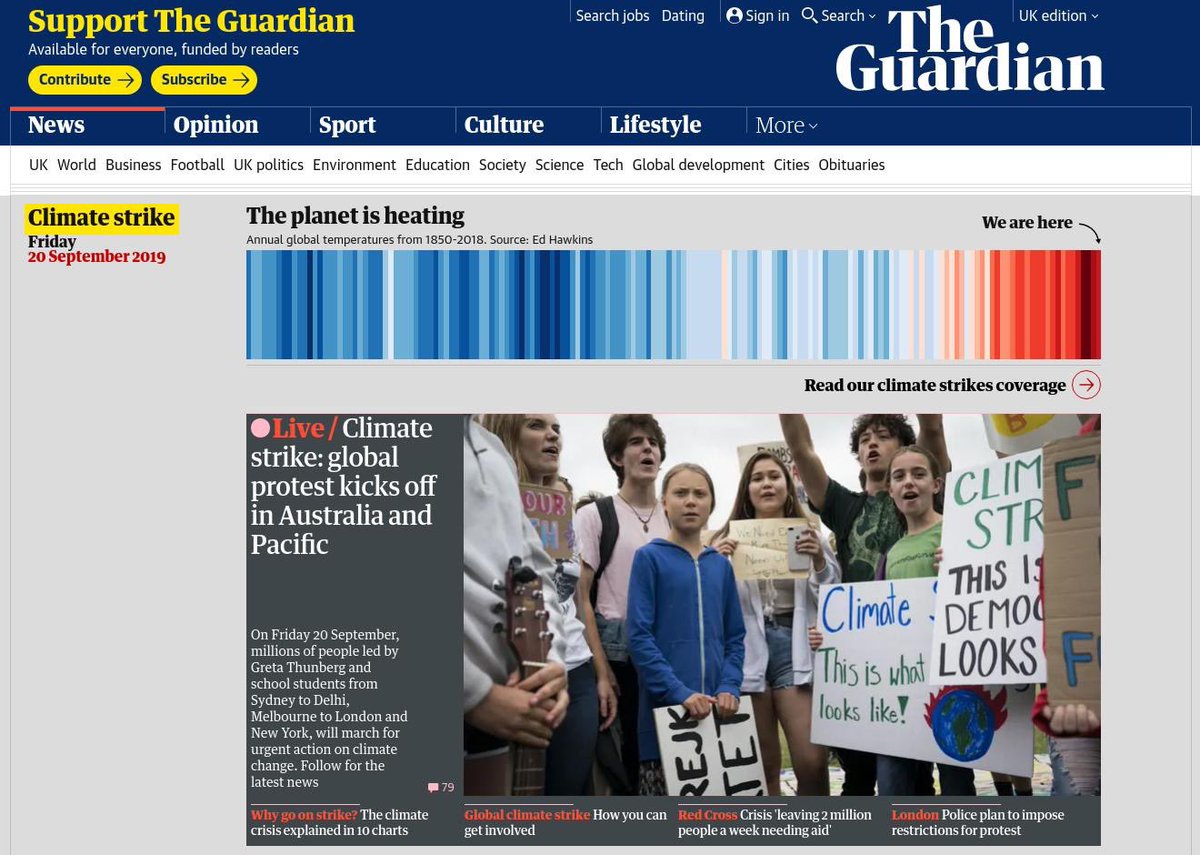
Dear @BBCNews: this phrase, used in several recent articles, is not a fair representation of the science on extremes.
”Experts say that climate change is expected to increase the frequency of extreme weather events, but linking any single event to global warming is complicated.”
”Experts say that climate change is expected to increase the frequency of extreme weather events, but linking any single event to global warming is complicated.”
How about “Experts say that climate change is already increasing the frequency of extreme weather events, and many single events have been shown to have been made worse by global warming.” instead?
Perhaps @BBCAmos, @MattMcGrathBBC, @RHarrabin or @davidshukmanbbc could chat (again?) with the news team? The science has moved on and it would be great to see that reflected in the news coverage of extreme weather events, rather than the current inaccurate stock phrase.
Big improvement in @BBCNews Germany floods story update:
“Many factors contribute to flooding, but a warming atmosphere caused by climate change makes extreme rainfall more likely.”
followed by
“temperatures will keep rising unless governments [] make steep cuts to emissions.”
“Many factors contribute to flooding, but a warming atmosphere caused by climate change makes extreme rainfall more likely.”
followed by
“temperatures will keep rising unless governments [] make steep cuts to emissions.”
• • •
Missing some Tweet in this thread? You can try to
force a refresh














